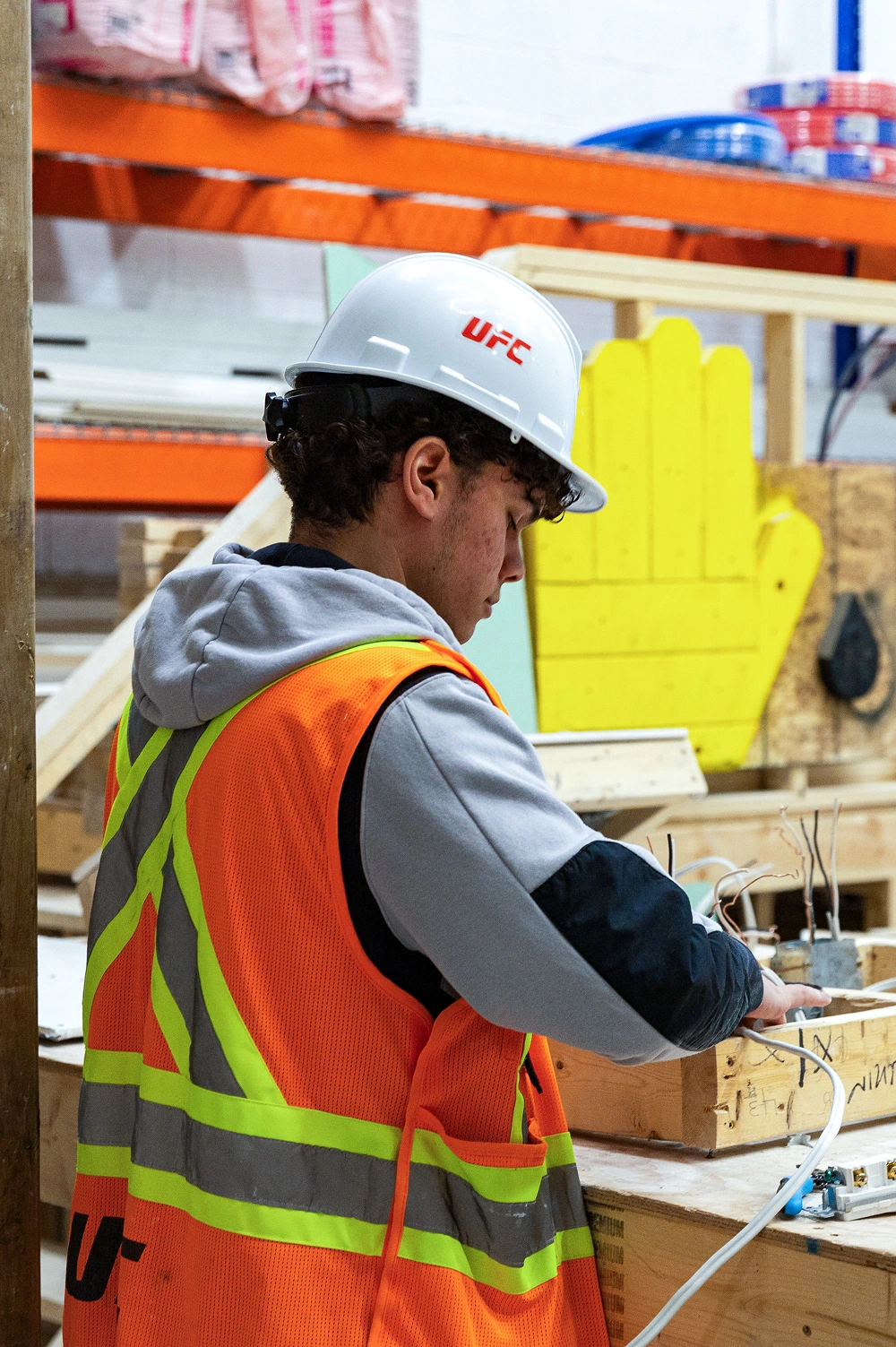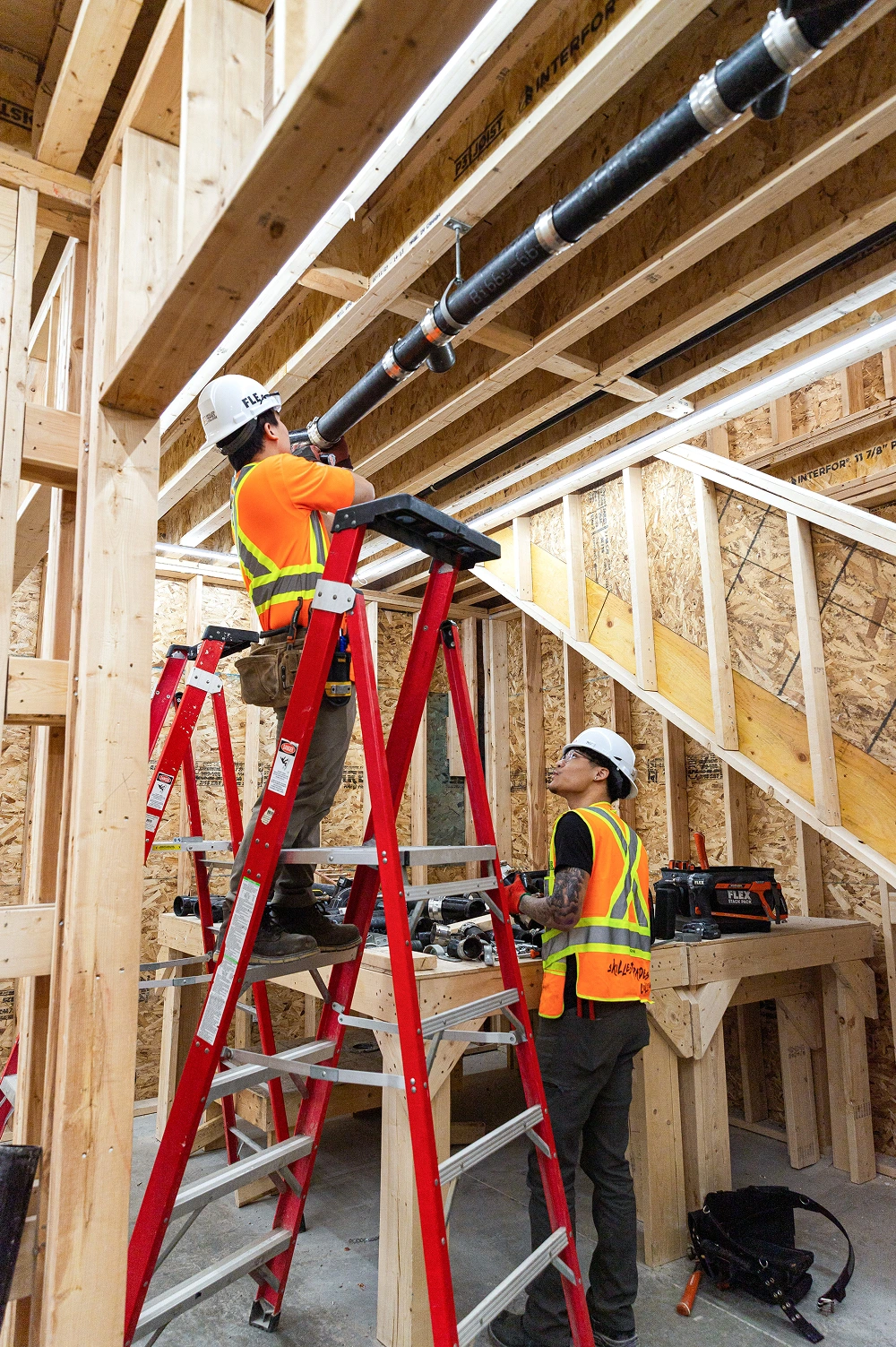How to Become a Builder in Ontario

Published On
10-05-2023

Thanks to cartoon shows like Bob the Builder and Handy Manny, many are exposed to construction and building at a young age. These programs feature fun storylines where characters fix problems through construction, making them delightful to watch. So why don’t all children pursue a construction career as they grow older?
One answer is that some children are more inclined to pursue the sciences or arts as they learn more about them. Others might suggest they’re not interested in a construction career because of prejudice surrounding the field.
The truth is, there are a ton of stigmas and myths surrounding this career opportunity. However, this blog is here to debunk those misconceptions with facts because the trades industry has much to offer!
Here are eight myths about construction careers:
People believe a construction career is an easy profession and often the last resort for people who don’t have other options. Contrary to popular belief, construction work involves proper schooling and intensive hands-on apprenticeships in order to succeed. In order to even qualify for these apprenticeships, individuals need to have:
Construction companies need skilled workers to produce desired results. Being a credible construction employee requires years of experience and knowledge.

Everyone knows construction work has risks, such as falling objects and health hazards. These factors discourage people from choosing a construction career since they feel their life is always on the line.
While safety is a fair argument, construction companies are all about the welfare of their employees. Employers have to follow government safety regulations to keep workers out of harm’s way. Some mandated standards include:
There’s no getting around it: construction remains a male-dominated industry.
With that being said, slowly but surely, more women are carving out careers for themselves in this booming sector. In fact, one in every 50 women in Canada earns a living in construction, which is a significant increase from the one in 77 ratio from 40 years ago.
Overall, 13% of people employed in construction in Canada—as on and off-site workers—are women. There is certainly still a way to go, but that number is higher than what is found in the U.S. (9%) as well as in the U.K. (10%).

Considering income as a factor in choosing a career path is valid. However, those avoiding construction careers due to low wages have been misinformed!
According to ZipRecruiter, the best construction jobs in 2022 have annual salaries of up to $92,500. Beyond competitive salaries, those working in construction can also look forward to annual income increases as they move up the organization ladder.
Construction careers offer job advancement opportunities that assist your growth as an individual. Finishing an apprenticeship can lead you to work an entry-level job in a well-known company. After a few years on this path and you can pursue a carpenter career, a construction management career, and more!
As with careers in any other industry, having a construction job isn’t a dead end because it will open multiple doors for you. The time you spend in the field teaches you new skill sets that’ll be useful when you’re interested in becoming a foreman, supervisor, or even starting your own business.
People believe construction work is outdated because of the old technologies companies use for projects, but that is not the case. Rather, construction jobs are some of the top leaders in putting cutting-edge electronics in action like:
These innovations significantly improve the progress of construction projects by providing a visual of the expected outcome.
Most people assume that trades jobs are monotonous or lack job satisfaction. In reality, tradespeople often find fulfillment in their work by creating tangible and practical results. They take pride in seeing their projects come to life, making a positive impact on the built environment of fixing problems for clients. The variety of tasks and the ability to work with their hands can provide a sense of accomplishment and job satisfaction.
On that note, remember that all historical buildings wouldn’t be standing right now without construction workers. Participating in creating homes, towers, and skyscrapers is an honour!
Trades careers are in demand in almost every industry. With opportunities waiting on the other side of the door, the only thing left to do is to open it!
Start your career in construction by taking an apprenticeship at the Skilled Trades College of Canada. We provide extensive courses designed with a predominantly hands-on experience to deepen your knowledge of trades. Our alums can testify to how their lives changed and share that all myths about construction are, in fact, false.
Contact us to learn more about the courses we offer.
9,281+
LIVES CHANGED

12,481+
WIRES PULLED

85,382+
2X4'S CUT

9,756+
PIPES LAYED

9,281+
LIVES CHANGED

12,481+
WIRES PULLED

85,382+
2X4'S CUT

9,756+
PIPES LAYED

9,281+
LIVES CHANGED

12,481+
WIRES PULLED

85,382+
2X4'S CUT

9,756+
PIPES LAYED
